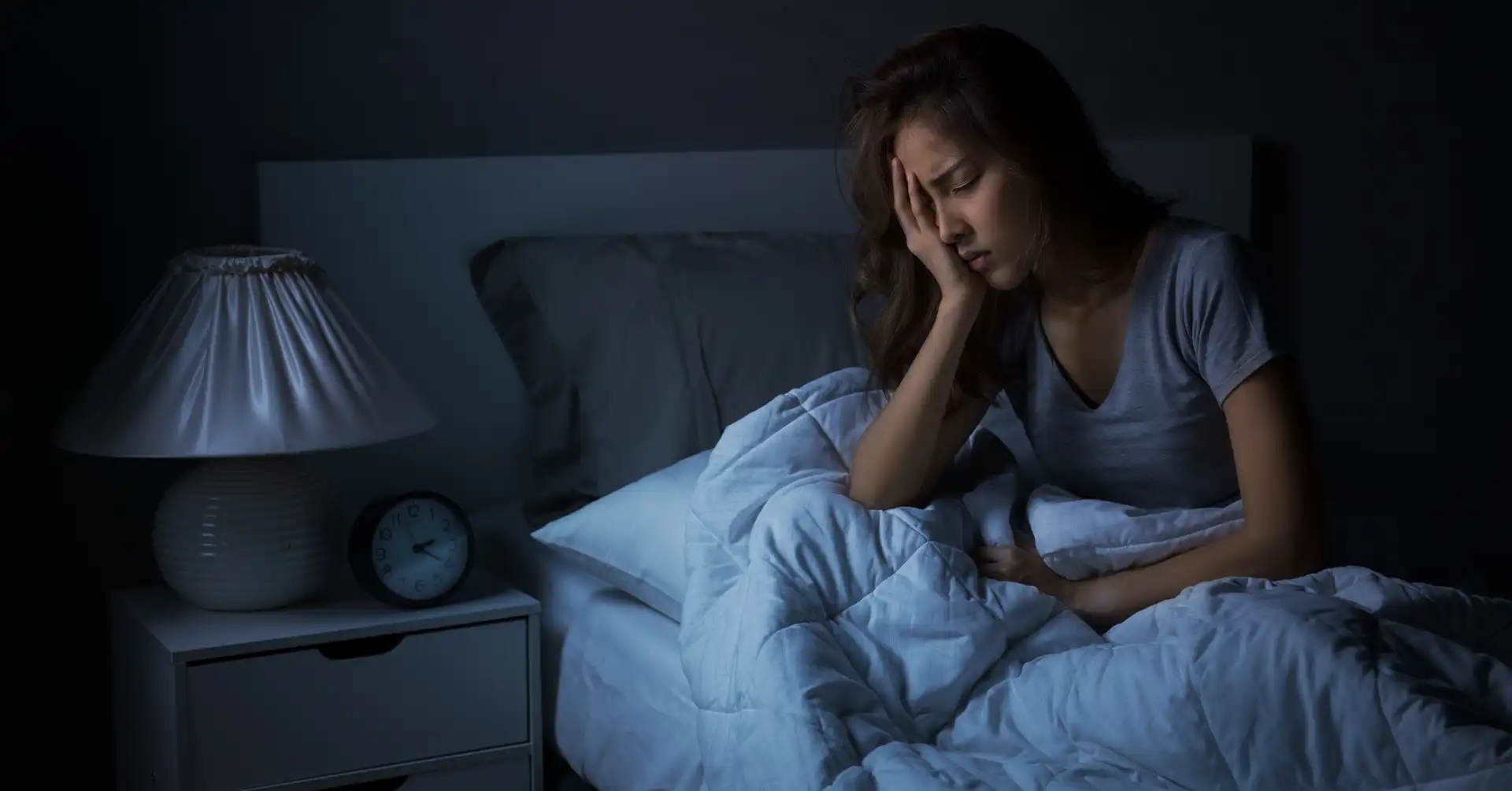Feeling perpetually tired yet unable to sleep can be a perplexing and distressing experience, leaving many wondering if there’s something fundamentally wrong. In this exploration of sleep-related challenges, we delve into the intricate web of factors that affect our ability to rest soundly. Beyond the apparent causes lie nuances between the effects of being tired and sleepiness, the intricacies of circadian rhythms, and the critical role of sleep hygiene. As we navigate this journey, we’ll uncover the impact of environmental elements, hormonal imbalances, lifestyle choices, and various medical conditions on the quality of our sleep. Understanding these facets is essential, not only for comprehending the reasons behind sleep troubles but also for paving the way toward effective solutions. Join us as we unravel the effects of being tired and offer insights into how to foster a healthier, more rejuvenating sleep experience.
Factors Affecting Sleep Quality
Sleep quality is influenced by various factors, each playing a significant role in determining the effectiveness of your rest. Understanding these factors can help you make positive changes to improve your overall sleep experience.
The Wrong Nap Strategy
Napping can be restorative, but only when done right. Learn the art of napping, including the ideal duration and timing, to ensure it boosts your energy without disrupting your nighttime sleep.
A Less-Than-Optimal Sleep Environment
Your sleep environment sets the stage for a restful night. Discover the importance of factors such as room temperature, darkness, and noise levels. Implement simple tips to optimize your sleep space and promote better sleep quality.
Circadian Misalignment
Your body’s internal clock, known as the circadian rhythm, plays a crucial role in regulating sleep-wake cycles. Understand how disruptions to this rhythm, caused by factors like shift work or travel, can impact your sleep patterns. Explore strategies to realign your circadian rhythm for improved sleep.
Anxiety and effects of being tired
Anxiety can wreak havoc on your ability to fall and stay asleep. Explore mindfulness techniques, relaxation methods, and natural remedies to manage anxiety before bedtime, creating a calm mental space conducive to sleep.
Depression and Sleep
Depression often goes hand in hand with the effects of being tired. Delve into the relationship between depression and sleep quality and discover therapeutic approaches, including medications and cognitive behavioral therapy, to improve both mental health and sleep.
Caffeine Intake and Timing
Caffeine, a common stimulant, can disrupt your sleep if consumed unwisely. Learn about the half-life of caffeine and how its timing can affect your ability to fall asleep. Discover optimal cutoff times and alternatives to ensure your caffeine intake doesn’t interfere with your rest.
Electronic Devices and Blue Light
The use of electronic devices, especially before bedtime, exposes you to blue light, which can suppress melatonin production and hinder sleep. Explore the impact of blue light on your circadian rhythm and learn strategies such as blue light-blocking glasses and device-free periods before sleep to enhance your sleep quality.
Hormonal Imbalance and Sleep
Effect of Hormonal Fluctuations (Estrogen, Progesterone, Melatonin, Thyroid Hormones)
Hormonal imbalances, particularly in women, can significantly impact sleep patterns. Fluctuations in hormones such as estrogen, progesterone, melatonin, and thyroid hormones can lead to disturbances in sleep. Estrogen and progesterone fluctuations, common during menstrual cycles, perimenopause, and menopause, can cause mood changes, anxiety, and night sweats, all of which affect sleep quality.
Melatonin, the hormone linked to the circadian rhythm, decreases with age, making it difficult for your internal clock to regulate itself. Thyroid imbalances, whether hyperthyroidism or hypothyroidism, can overlap with sleep disorders like insomnia and sleep apnea.
Strategies for Supporting Hormonal Health
Several strategies can help support hormonal health and improve sleep:
- Dietary Choices: Increase intake of protein, fiber, and healthy fats while reducing sugar consumption. A balanced diet contributes to hormonal balance.
- Stress Management: High stress levels can exacerbate hormonal imbalances. Incorporate relaxation techniques such as meditation, yoga, or deep breathing exercises to manage stress.
- Supplements: Certain supplements, under the guidance of a healthcare professional, can aid hormonal balance. Consult a healthcare provider before incorporating any supplements into your routine.
- Regular Exercise: Engage in regular physical activity, which can help regulate hormonal levels and promote better sleep.
- Sleep Environment: Ensure your bedroom provides an optimal sleep environment. Maintain a cool, dark, and quiet space conducive to restful sleep.
Other Medical Conditions and Sleep
Impact of Medical Conditions on Sleep Patterns
Various medical conditions can disrupt sleep patterns, leading to poor sleep quality. Respiratory conditions, chronic pain, skin issues, neurological disorders, and digestive problems are all linked to sleep disturbances. Additionally, treatments for these conditions, including medications, can cause unintended side effects such as insomnia, further complicating sleep.
Risks of Poor Sleep on Chronic Illness
Chronic sleep deprivation can contribute to the development and worsening of several chronic illnesses:
- Cardiovascular Disease: Poor sleep is associated with an increased risk of heart disease and hypertension.
- Diabetes: Sleep deprivation affects insulin sensitivity, increasing the risk of type 2 diabetes.
- Obesity: Lack of sleep disrupts hormones regulating appetite, potentially leading to weight gain and obesity.
- Mood Disorders: Sleep disturbances can exacerbate mood disorders such as depression and anxiety.
- Cognitive Impairment: Chronic sleep deprivation can lead to cognitive decline and impairments in memory and decision-making.
- Dementia and Alzheimer’s Disease: Prolonged poor sleep is linked to a higher risk of developing dementia and Alzheimer’s disease in later life.
It is crucial to address both the underlying medical conditions and sleep disturbances to mitigate these risks. Consultation with healthcare professionals is essential to manage both medical conditions and sleep problems effectively.
Managing Sleep Problems
Importance of Consistent Sleep Schedule
Maintaining a consistent sleep schedule is crucial for regulating your body’s internal clock. Going to bed and waking up at the same time every day, even on weekends, helps set a natural sleep-wake cycle. This consistency reinforces your circadian rhythm, enhancing the quality and duration of your sleep. Irregular sleep patterns can disrupt this cycle, leading to sleep problems and daytime fatigue.
When to Seek Professional Help for Sleep Issues
If you’ve made adjustments to your sleep hygiene and still struggle with sleep problems, it’s essential to seek professional help. Persistent sleep issues could indicate underlying sleep disorders or other health conditions. Consulting a healthcare provider or a sleep specialist can lead to proper diagnosis and tailored treatment plans. Don’t hesitate to seek help if your sleep problems are impacting your daily life and overall well-being.
Individualized Approach to Sleep and Wellness at PrimeHealth
At PrimeHealth, we understand that every individual is unique, and so are their sleep challenges. We offer a personalized and comprehensive approach to sleep and wellness. Our experienced healthcare professionals assess your sleep patterns, lifestyle, and overall health to create a customized plan. This individualized approach may include targeted therapies, behavioral interventions, and lifestyle modifications tailored to address your specific sleep issues. By addressing the root causes, we aim to improve your sleep quality and overall quality of life.
Conclusion | Effects of being tired
Encouragement to Seek Support and Improve Sleep Health
Poor sleep can significantly impact your physical and mental well-being. It’s not something you have to endure alone. We encourage you to seek the support you need to improve your sleep health. Whether you’re dealing with occasional sleep disturbances or chronic insomnia, reaching out for help is the first step towards better sleep and enhanced quality of life.
Subscription and Contact Information for Further Assistance
For more information, tips, and updates on sleep health and overall wellness, consider subscribing to our newsletter. Stay informed about the latest developments in sleep research, effective sleep solutions, and lifestyle practices that promote restful sleep. If you have specific questions or need personalized guidance, don’t hesitate to contact us. Reach out to PrimeHealth for expert assistance tailored to your unique sleep needs. You can subscribe to our newsletter on our website or contact our team directly via phone or email. We’re here to support you on your journey to improved sleep and better health.
Also Read:
Female Hormone Imbalance: Navigating Hormonal Changes






